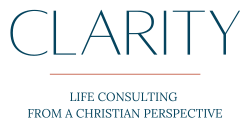Sometimes in discernment we find ourselves stuck. We’re praying hard, trying to listen to God, trying to spend time in silence listening to our own souls. And yet… we can’t seem to make progress, nor can we seem to find peace in the waiting.
Good discernment can look like forward motion; it can also look like sitting still with the Lord.
But sometimes we can do neither.
If you find yourself in this scenario, it’s worth asking if maybe something is holding you back from good discernment.
Here are some things that consistently get in the way of good discernment. They don’t carry equal moral weight, but they do all have the habit of rendering someone unable to move forward or sit still peacefully.
||ONE|| Sin, Especially Habitual Serious Sin
Sin makes it difficult or sometimes nearly impossible to be open to the grace of God. Scripture tells us that there is a type of sin that “leads to death,” but God exhorts us to choose the path of life. If we’re in the habit of turning away from God, it’s going to be really difficult to listen well to His voice. It also makes it difficult for us to discern good options, because we’re in the habit of choosing bad ones. (It’s like being in the habit of eating fast food all the time: it’s a lot harder to choose salad.) We need to confess our sins and ask for the grace to begin habitually choosing the path of life.
||TWO|| Phobia, Trauma, Depression, or Another Serious Psychological Condition
Sometimes there are things going on in our minds that are no fault of our own, but they make it difficult to trust ourselves or be open to certain situations. If, for example, you’ve had serious trauma in the past around marriage or romantic relationships, it may be harder to discern a relationship that could lead to marriage in the present. If you have a phobia of offices, it’s going to be difficult to discern any jobs that require working in an office. God can work with us no matter what, but it’s going to be difficult on our part to take steps forward in confidence, because fear is whispering that it’s not a good idea. Just being aware of it is a good beginning. Then, there are many possible avenues towards healing to explore.
||THREE|| Addiction
Addiction to anything makes us a slave to that thing. We want it, no matter what. We’re willing to sacrifice anything for it, no matter what. Which means that it’s going to be really difficult to discern paths that require us giving it up! If you’re addicted to smoking, for example, but want to discern a way of life that would require giving it up entirely, like being a Cistercian monk, then it might be that you would discern monastic life, except for the siren song of those cigarettes who refuse to let you part from them. Overcoming addiction can open up paths of discernment.
||FOUR|| Grief
Grief over loss is a gift, but it is a heavy one. It’s the human way of dealing with the difficulty of love bound by time: that the person we once loved is no longer with us in the present. Grief is a time when we’re sorting out our relationship to time, especially the past and the present – which means that discerning paths affecting our future can be extra difficult. When we’re living with grief, the future can seem almost impossible, because our loved one is no longer a part of that picture in the same way we thought they would be. If we take a healthy approach to grief – allowing it to run its course, and settle in when it needs to, eventually it will give us space to start thinking about the present and future again.
||FIVE|| Substances/ Things That Interfere With the Ability to Listen to Our Bodies
God made us body-soul unities, which means that part of good discernment involves paying attention to our bodies. There are substances in this world that can interfere with it: the obvious examples being drugs like crack cocaine or marijuana, which cause us to disassociate from our bodies. But in a different way, things like contraceptives or other hormone-interfering substances have been proven to lessen our ability to make good decisions. Even something like a constant lack of sleep or perpetual stimulation from tech can make it difficult for us to know how we actually feel, physically. We are body-soul unities, but it can be hard to live like it in a fallen world. Living life in a way that lets us listen to our bodies is important for good discernment.
Next time you feel yourself truly stuck in discernment, it’s worth pausing to consider whether one of these things might be blocking your path and/or rendering you unable to sit still.






